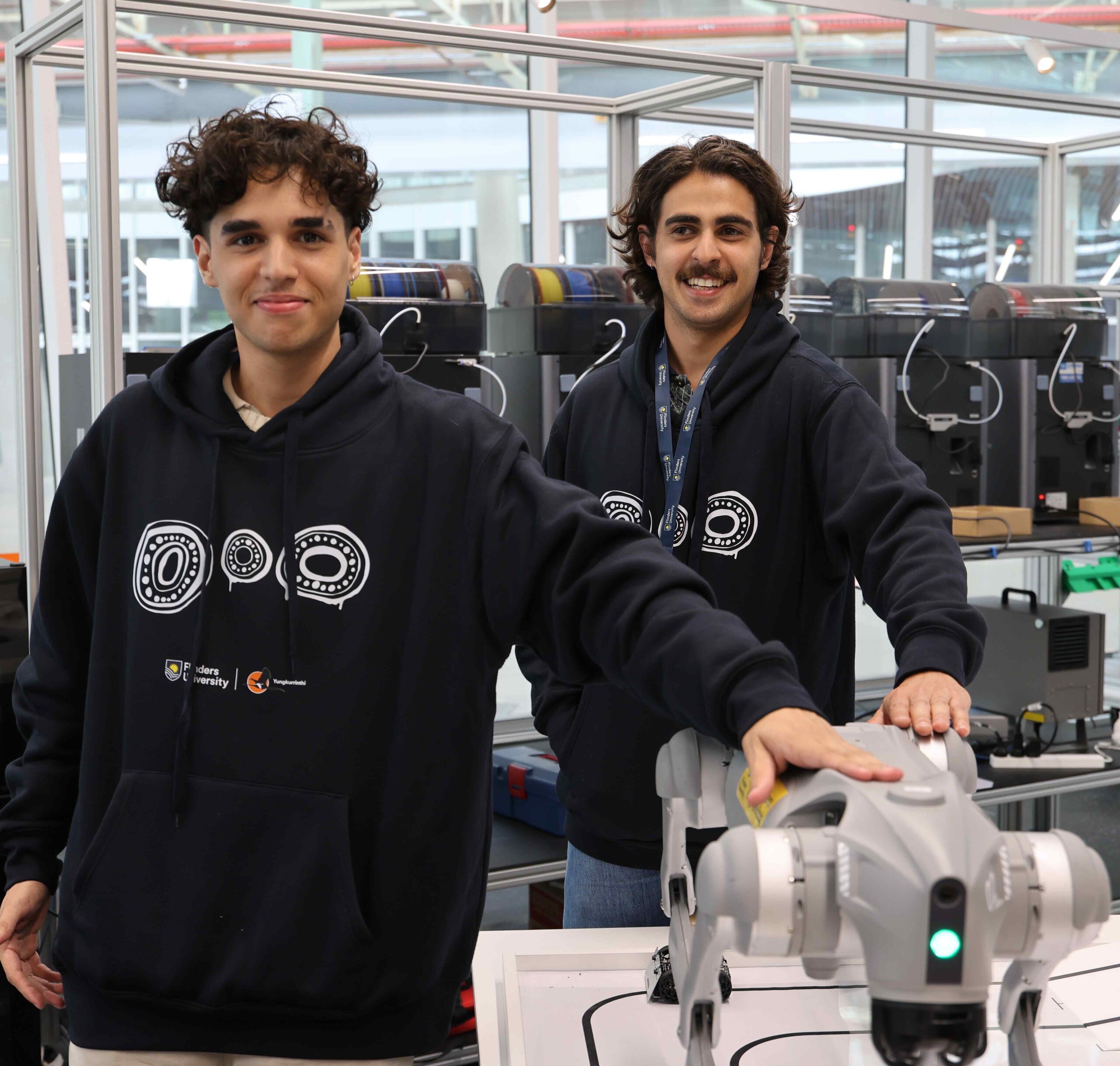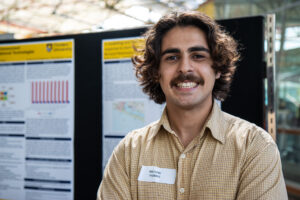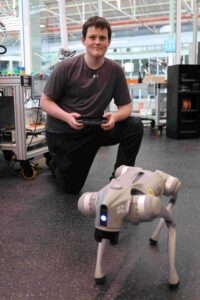
Flinders University this week welcomed 14 high school students to the first Indigenous Australian Engineering School to be hosted in Adelaide.
The IAES program (17 to 20 November), a collaboration between Flinders University and Engineering Aid Australia, will bring together Indigenous high school students from South Australia, Victoria and the Northern Territory who share a passion for STEM subjects, and introduce them to engineering through workshops, site visits and hands-on activities.
It's a program that has a profound effect on young Indigenous students. Raphael Thomas is finishing his final year of studying engineering at Flinders University - and was inspired to pursue this course after attending IAES.

"I completed the IAES in Sydney during 2019, when I was in Year 11. Up 'til that point, I was unsure of what I wanted to do. I knew I was leaning towards something with a math or science focus and was recommended to look into engineering, but I didn't know anyone who did engineering, and the information out there felt very general and vague," says Raphael, whose brother Reuben travelled to this year's event at Flinders University.
"IAES answered my questions about the field of engineering, from day-to-day work to identifying the different avenues my career could follow. It opened me up to different types of engineering through visits to major employers.
"After IAES, I applied for a Bachelor of Civil Engineering at Flinders, and I have also gained paid internships through the IAES network - and have secured a graduate engineering job at leading civil engineering company in Perth, commencing next year.
"The summer school was the most formative event in directing my career path, giving me the confidence to pursue a career in engineering."
The IAES aims to inspire, empower and connect future Indigenous leaders in STEM, through a rich blend of cultural experiences, hands-on engineering activities and visits to leading industry partners.

"It's a winning program. The IAES has run for almost three decades in NSW through UNSW, the University of Sydney, Newcastle University and at Curtin University in WA. This is the first time it will be held in South Australia, and Flinders is proud to be partnering with EAA," says Professor Giselle Rampersad, Dean (Education) in the College of Science and Engineering at Flinders University.
The Indigenous Australian Engineering School is a free, hands-on four-day program held at Flinders at Tonsley that is available for Indigenous high school students from across South Australia, Victoria and the Northern Territory.
Participants will engage in workshops, activities and visits with qualified engineers to sites including the Torrens to Darlington tunnel (with Arcadis) and a shipyard tour with BAE in Osborne. They will also visit cutting-edge laboratories, and connect with other like-minded students. Travel, meals and accommodation are all covered - and eligible participants may be considered for ongoing support through Engineering Aid Australia scholarships.
IAES is supported by a broad coalition of industry partners across defence, construction, and energy - including Tonkin, BAE, ASC, Babcock, Arup, Ventia, Arcadis and Bechtel.
Flinders University was chosen to host the first SA-based IAES event due to its degree apprenticeship pathways and industry collaborations that create real opportunities for Indigenous students and help them envision future possibilities.

"We hope to attract some IAES participants into our degree apprenticeship programs to further expand their opportunities," says Professor Rampersad.
Arimaya Yates, CEO of Engineering Aid Australia (EAA), says the IAES "empowers young Aboriginal and Torres Strait Islander students to see their culture and connection to Country as strengths in shaping Australia's engineering future".
"Not only does this expand opportunities for Aboriginal and Torres Strait Islander youth to step into an underrepresented space, but it also creates a powerful opportunity for First Knowledges to collaborate with contemporary engineering - a national first for South Australia," she says.
"This has been made possible through strong partnerships and shared purpose, and we're deeply grateful to our founding partner, Tonkin, and to Flinders University for helping us bring this to life on Kaurna Country."






